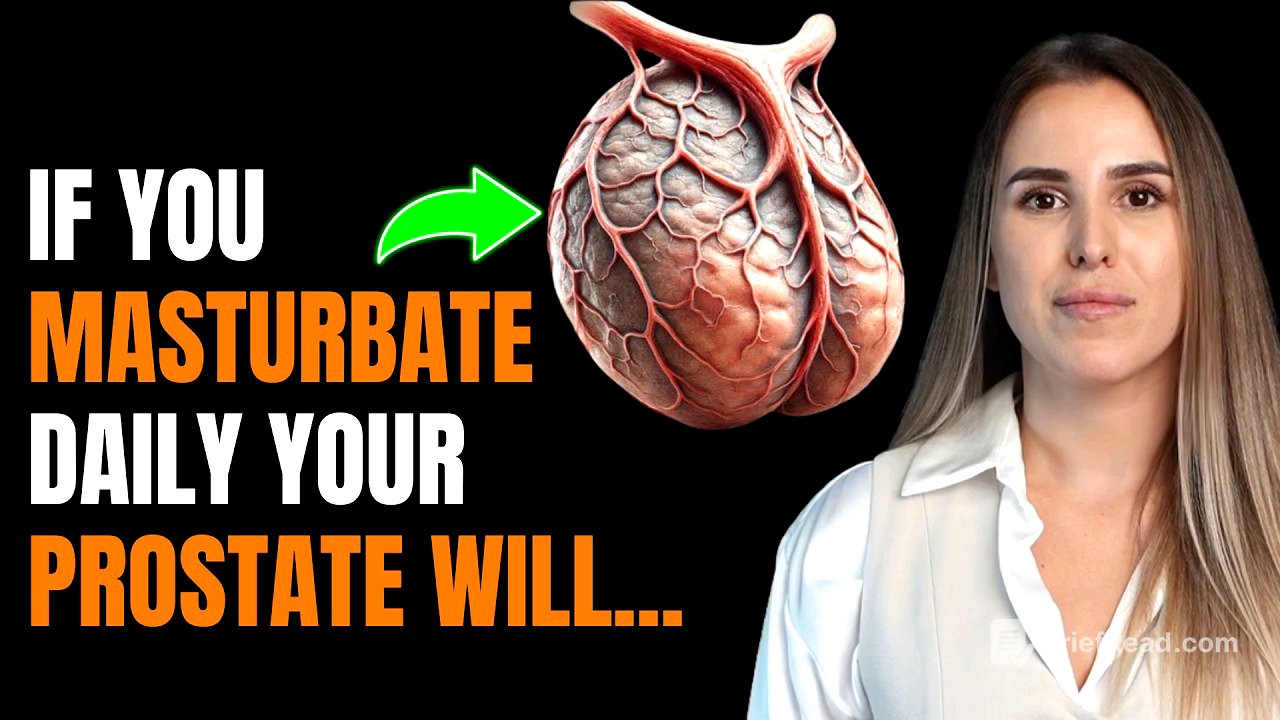TLDR;
This video addresses the common question of whether frequent masturbation affects prostate health. It debunks myths by presenting scientific evidence from a Harvard study that suggests regular ejaculation can lower the risk of prostate cancer. The video also discusses potential mechanisms behind this protective effect and emphasizes the importance of a holistic approach to prostate health, including diet, exercise, and regular checkups.
- Regular ejaculation is linked to a lower risk of prostate cancer.
- The prostate stagnation hypothesis suggests ejaculation helps clear out old cells and harmful substances.
- A healthy lifestyle, including diet and exercise, is crucial for prostate health.
- Regular medical checkups are essential for early detection of potential problems.
Introduction: Debunking Myths About Masturbation and Prostate Health [0:00]
The video starts by addressing the common anxieties and misinformation surrounding the effects of frequent masturbation on the prostate. It challenges the myths that masturbation can lead to prostate damage, inflammation, or increased cancer risk. The speaker promises to reveal the truth based on scientific evidence, which contradicts popular misconceptions.
Understanding the Prostate Gland [0:43]
The prostate gland is a small, walnut-sized gland that produces fluid to nourish and transport sperm. It sits below the bladder and in front of the rectum and plays a significant role in men's health, especially as they age. Common myths suggest frequent masturbation can wear out the prostate, cause prostatitis, or increase the risk of prostate cancer. These fears are understandable, as prostate cancer is a common concern among men.
The Harvard Study: Challenging the Myths [2:20]
A landmark study from Harvard University followed nearly 32,000 men for almost two decades, tracking their lifestyles and health outcomes, with a key data point being ejaculation frequency. The study revealed that men who reported a higher frequency of ejaculation had a significantly lower risk of developing prostate cancer. Specifically, men who ejaculated 21 or more times per month had up to a 33% lower risk compared to those who ejaculated only four to seven times per month. This finding contradicts old fears and suggests a protective effect.
Theories Behind the Protective Effect [3:57]
Several theories explain how regular ejaculation could protect the prostate. The prostate stagnation hypothesis suggests that ejaculation helps flush out old cells, built-up secretions, and potentially harmful substances from the prostate ducts. Another theory suggests that frequent ejaculation promotes a healthier cycle of cellular turnover, replacing old, potentially damaged cells with new, healthy ones. Additionally, ejaculation is linked to a reduction in stress and psychological tension, which can lower the body's overall inflammatory response, contributing to a healthier prostate.
The Bigger Picture: Holistic Prostate Health [6:48]
While frequent ejaculation is beneficial, it is not a guaranteed way to prevent prostate cancer. The research shows a strong correlation, but other factors are involved. Men with higher ejaculation frequency may also have other healthier lifestyle habits. Diet is critical, with fruits, vegetables, and healthy fats being beneficial. Foods containing lycopine, green tea, and omega-3 fatty acids are also great additions. Regular physical activity helps maintain a healthy weight, reducing the risk of aggressive prostate cancer. Avoiding smoking and limiting alcohol consumption are also important. Regular medical checkups, especially for men over 40 or 50 or with a family history of prostate cancer, are crucial for early detection and treatment.
Conclusion: The Truth About Masturbation and Prostate Health [9:03]
The video concludes that daily masturbation is not harmful and may contribute to a healthier prostate over the long term. It is not a cure-all or a replacement for a healthy lifestyle and regular doctor visits, but the evidence is compelling. A healthy sex life, including masturbation, is a partner in the fight for long-term prostate health.






![24 Oras Express: September 11, 2025 [HD]](https://wm-img.halpindev.com/p-briefread_c-10_b-10/urlb/aHR0cDovL2ltZy55b3V0dWJlLmNvbS92aS9wa0d6dTloY2dXdy9ocWRlZmF1bHQuanBn.jpg)


